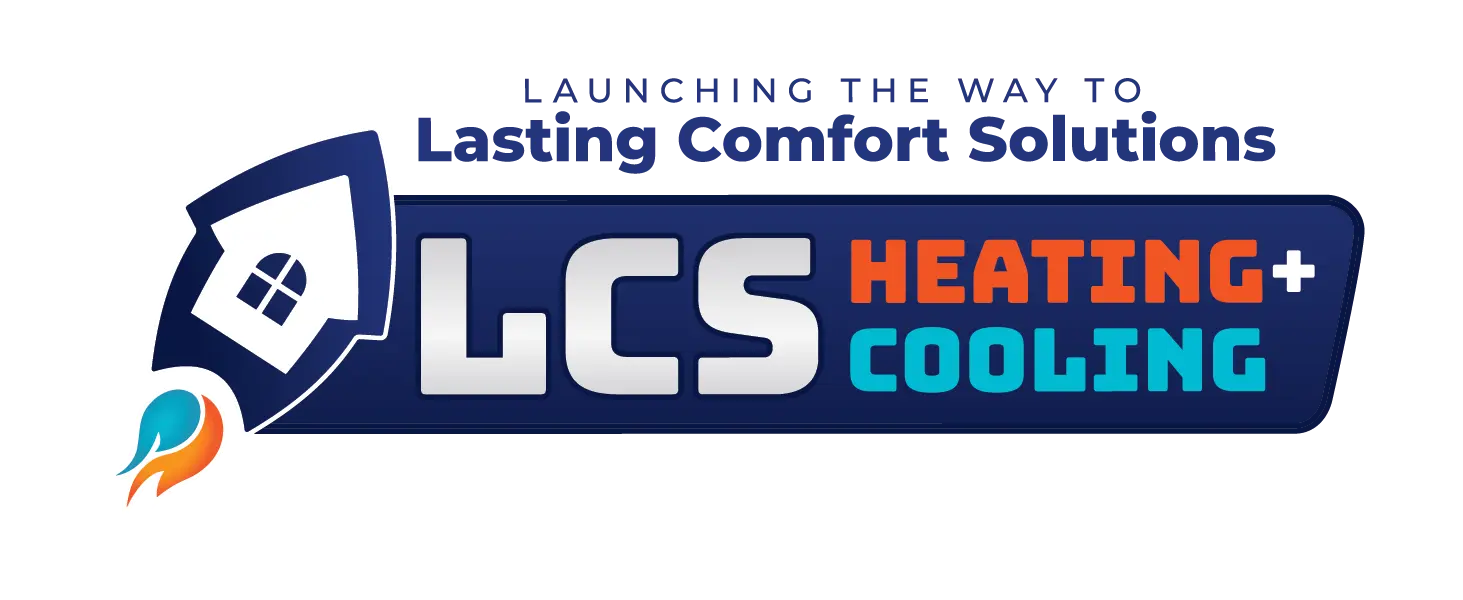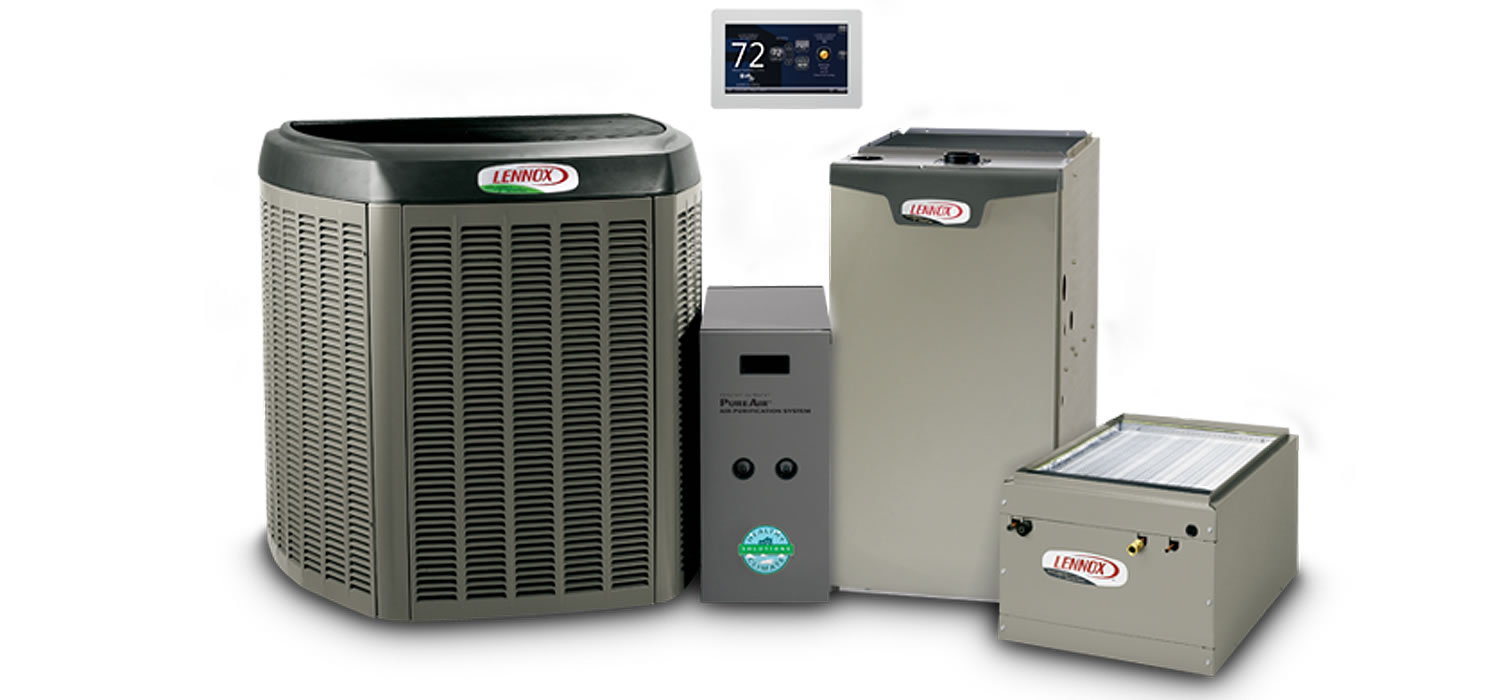Check-ups for your kids, any pets, and the car all have their purpose. You want to make sure everything is working as it should, and your preventative HVAC maintenance isn’t much different. Scheduling regular, preventative maintenance for HVAC equipment helps homeowners stay “in the know” on their system.
Before the seasons switch, make an appointment with your local HVAC company to make sure everything is okay with your cooling system. No one wants to wake up to a broken AC unit right when the weather starts heating up! Make sure your technician reviews the following on your system (and with you) for a job well done.
What’s Covered in Your Cooling Tune-Up?
Your annual maintenance process should always include a detailed review of the inside and outside components of your cooling system. It’s important to get an AC tune-up done once a year to prevent unnecessary issues. Scheduling your service during the cooling season can help you get the best benefits!
There are many different technical parts to review in your unit. Testing each of these areas takes a little time, but going through them one-by-one will help your technician identify any air conditioner problems that may occur. If you can isolate errors to a single step in your system’s process, it will be easier to keep repair costs down and extend the lifespan of your AC unit. Your cooling tune-up should always include tests for:
- Check operating pressures and temperatures
- Superheat measurements
- Temperature drop at return and supply air
- Contactor condition and operation
- Proper operation of controls
- Wiring and electrical connections
- Fan and inducer motor voltage and amperage
- Function of capacitors and relays
If all of those tests are completed in good working order, your tech would then move on and perform steps for ongoing maintenance. Because dirty units won’t be able to run properly, these items are very important for every tune-up. A few more details can help keep your system running at peak efficiency:
- Lubricate blower motor, condenser fan, and other moving parts (if needed)
- Clear the condensate drain for overflow protection
- Clean outdoor condenser unit for proper airflow
The final steps on the check-list relate to customer care. Your technician should always be ready to review your key concerns about your AC’s operation and be able to address the following for a full-service review:
- Check thermostat and adjust (if needed)
- Evaluate air filters, and clean or replace (if requested)
- Review equipment condition and answer any questions
If your HVAC technician can complete the following, you will probably be all set for annual maintenance. As the old adage goes, “An ounce of prevention is worth a pound of savings!”
HVAC Savings with Annual Maintenance
Scheduling annual maintenance is also smart for homeowners looking to save money. Some HVAC companies offer special discounts for their annual maintenance clients. At LCS Heating and Cooling, these HVAC discounts are included in with your LCS Gold Star Membership or LCS Platinum Star Membership. Each membership comes with a monthly payment option—and tons of great savings.
Available for both residential and commercial customers, these memberships work to give you maximum efficiency for your heating and cooling tune-ups at the minimum cost. Both Gold and Platinum Star Memberships offer 10% off repairs, 15% off indoor air quality products and services, and discounted after-hours rates. If anything does go wrong with your unit, it’s great to be a member.
Gold Star Membership automatically gives you $20 off service calls, and even waives the service call with a paid repair over $300 during regular business hours. Platinum Star Membership includes a year’s supply of filters, plus a waived service call for any paid repair during regular business hours. Platinum members also get to participate in our special loyalty program. The longer you stay on the maintenance plan, the more benefits you receive. You can even earn up to $700 towards a full system replacement!
Quality HVAC Service with LCS Heating and Cooling
Your HVAC preventative maintenance and other air quality upgrades help keep your home comfortable and energy-efficient. (And the savings aren’t bad, either!) If you’re ready to give your HVAC units the care they need for a great, long-term performance, give us a call at (317) 238-3961. We’d love to talk with you about our HVAC Membership benefits!
Being pro-active will help keep your systems operating smoothly for years to come. Don’t wait to face AC repairs later in the year. Preventative maintenance helps homeowners stay on the ball and plan for possible problems in advance. Contact the HVAC experts at LCS Heating and Cooling to tune-up your system and start saving today!
February 28, 2018
Not sure who to call when the AC breaks down? You’re not alone! Deciding which HVAC company to go with can be a confusing process, but things get a lot simpler when you work in stages. If your AC isn’t working quite right, or you’re thinking about a system upgrade, take a look at these checklist items first. A little research can help you find an HVAC company you can trust.
Part I: Examining Your AC Unit
Whenever you can, try to check on a few things with your unit before making a service call. Sometimes a quick fix is all you need to solve the problem.
- Check the thermostat. This is often the first place we go, but double-check to make sure it’s set correctly. If the thermostat screen is blank, that might mean you need to replace the batteries (if it takes any).
- Replace your air filter. Hands down, the best way to keep your HVAC unit in good order is to regularly change your filter. Old filters restrict air flow and can even stop your system from working if they’re dirty enough.
- Clear the area around your AC unit. Landscaping debris might be blocking the air flow around your system. Make sure the unit can run properly and efficiently by cleaning up, and then confirm that the breakers are turned on.
If nothing has changed after taking those steps, it might be time to call in a professional. Try to make a couple notes on your unit’s symptoms so you have all the information you need to schedule the visit. Strange noises with your HVAC unit, odd smells, and any new cold or hot zones in your home are all indicators that your system needs servicing.
Part II: Finding a Reputable HVAC Company
So you’re ready to bring in the professionals, but not sure who to call? You’ll be more likely to find a great HVAC company when you stick to a few guidelines.
- Ask your contacts about recent service. Try posting a status update on social media to say you need service. Your friends and family will be happy to tell you about their last HVAC experience—whether good or bad, you should easily be able to get a few first-hand accounts about local companies.
- Read online HVAC reviews. More and more people are using Yelp to review HVAC companies. If you have a company you’re thinking of calling, check out a few of their reports first. It’s a good sign if customers are praising their HVAC repairs, not just the system replacements. That usually means the company is honest (because they’re not trying to up-sell) and works with your best interests in mind.
- Confirm that the company is bonded, insured, and licensed. The City of Indianapolis requires a permit for replacing an air conditioner. Visit your HVAC company’s website to make sure they are licensed in your area. Working with a company that’s bonded and insured will also protect you from any complications that might happen during a service call.
When it comes to HVAC repairs and new installations, a company’s experience matters a lot more than their location. Your best option may not always be the company that’s closest to you, so feel free to check credentials in a wider radius.
Part III: Reviewing Your AC Service Call
Once you’ve selected a company to try out, pay close attention to how they handle your service during their visit. Comparing etiquette is often just as important as comparing price!
- Was the technician professional? Using shoe coverings in your home and cleaning up around the worksite are signs of good employee training.
- Is the company’s pricing straight-forward? Having a flat-rate fee for service calls is standard practice, but it’s an added bonus if your HVAC company says they’ll waive the service fee if your system needs more expensive repairs.
- Did your technician explain the next steps? A good tech will tell you exactly what they checked and be able to confidently answer all of your questions. If they said a certain part on your unit needs replacing, they should also tell you whether it’s covered under warranty.
Last but not least, be sure to trust your instincts when hiring a new home services company. Doing your research is definitely a plus, but sometimes you’ll just know a good thing when you see it. If you’ve already vetted your new HVAC company, the only other thing you can do is to go with your gut!
May 31, 2016
We get lots of questions regarding HVAC maintenance. This is a good thing! It means people care about their HVAC investment. Since we're entering air conditioner season, let's focus on questions relating to air conditioner maintenance:
- What is air conditioner maintenance? Preventative maintenance is completed on the a/c to ensure that it is running properly and as efficiently as possible. The air conditioner is cleaned and there are many components that are checked. If a reading is off or out of range, the homeowner will be made aware. Keeping the air conditioner clean also ensures proper air flow.
- Can I turn my air conditioner on before maintenance has been completed? Yes! The air conditioner can certainly run before maintenance is done. Keep in mind that maintenance keeps it running as efficiently as possible.
- What months do you schedule maintenance? We generally start scheduling maintenance mid-April, depending on the weather, and continue to schedule throughout the summer. It's more important that maintenance is done each year rather than it being done a specific week or month.
- Can the service be completed if it's raining? We will reschedule your maintenance appointment if it's raining or below 60-65 degrees outside. Although the techs do have raincoats, we don't want some of the tools and gauges out in the rain. We also don't want your a/c exposed to the moisture. The new R-410 refrigerant attracts moisture 10 times more than the old R-22 refrigerant. We don't like to take chances, so we'll always reschedule if it's raining. In addition to being dry outside, it also needs to be at least 60-65 degrees outside. If it's colder than that, the temperature drop and readings could be inaccurate. Accuracy is key, so we will reschedule if it's too chilly outside.
- How will I know what the technician does during the service? The technician will complete an invoice detailing everything that was completed during the maintenance service. He will also let you know how everything looked and answer any questions you have about your system.
- How much does an annual maintenance plan cost? Our plan is $150 per year. That includes the maintenance service on the a/c in the spring or summer and the maintenance service on the furnace in the fall/winter. Other benefits included with the plan are: No service call if a return visit is needed within 30 days, $10 off service call, 15% off repairs, 15% off indoor air quality (humidifiers, filters, thermostats, UV lights, etc) and no overtime rates if service is needed in an evening, weekend or holiday.
- Does maintenance guarantee that my air conditioner will not break down? Air conditioners are machines and can break down at any time. That being said, there are issues that can be found during maintenance and either repaired at that time or at least brought to the homeowner's attention. For example, the technician may see that a motor reading is in range, but on the high end. While it doesn't necessarily need replaced at that time, the homeowner can be made aware that the motor is on it's way out. It could last another week or it could last another 6 months. In any case, the homeowner is now aware.
- Will you change my filter while you're here doing maintenance? Absolutely! If you already have filters, we will gladly change it for you. If you don't have filters, we can provide you with the price to bring one with us. We also have an online filter program in which we can provide you with a code to order your filters online and have them delivered to your door. Shipping is free and you'll always have your filters on hand.
- What if I have two HVAC systems at my house? We can put each system on the annual maintenance plan. We'll schedule a longer period of time to be at your house to complete maintenance on both air conditioners (and same in the fall/winter for the furnaces). The second system would be $10 off ($150/$140 for two plans).
- Do I need to be home when you do the air conditioner maintenance? Preferably, yes. We will need access to the thermostat and furnace area so will need inside the house. If you have a lockbox or garage code, we can enter that way but always prefer having someone home so the technician can answer any questions while he's there.
Hopefully, we answered some of your questions about air conditioner maintenance! If not, feel free to contact us as we're happy to discuss.
May 1, 2014
We've had one of the coldest winters on record here in Indianapolis so it seems everyone has spring fever! With the arrival of spring comes a whole checklist of home maintenance items just waiting to be done. Here's a list of items that you can do around your home
to tidy up and get ready for summer:
- Schedule air conditioner maintenance (you knew this would be #1 on our list, right?)
- Change the filter
- Install new batteries in thermostat
- Install new batteries in smoke and carbon monoxide detectors
- Test and dust all detectors
- Check fire extinguishers
- Inspect bathroom, kitchen, door and window caulk; re-caulk as needed
- Clean and seal deck if needed
- Inspect exterior paint and touch up as needed
- Inspect siding/masonry for damage
- Repair/replace damaged window screens
- Inspect roof for damage
- Inspect outdoor play equipment
- Inspect attic for leaks
- Inspect attic insulation
- Clean gutters
- Prune spring and summer- flowering shrubs after they bloom
- Schedule yearly septic tank inspection
- Schedule irrigation inspection
- Inspect foundation for drainage problems
- Inspect crawl space/basement for moisture issues
Preventive maintenance goes a long way. Monitoring items such as these can prevent big problems in the future! Enjoy spring!
April 8, 2014
Is It Too Late for Air Conditioner Maintenance?
What a crazy summer it's been! Mother Nature has given us a little bit of everything- cooler than average temperatures, rain, heat and humidity! As we enter the last half of the summer, we are asked the question: Is it too late to have preventative maintenance completed on my air conditioner?
The short answer is: No! It's definitely not too late.
Air conditioners run constantly so it's never too late to give them a good tune-up and cleaning. Grass clippings, cottonwood, leaves and construction dust can all collect around and in the air conditioner. If this happens, air will not flow through the air conditioner as it should. This drops the efficiency of the air conditioner and causes pressures to change.
A tune-up not only checks the operation of different parts but also measures the temperatures and pressures too. It may be seen that amp draws are a little off or pressures are a little low. Finding these issues during a tune-up may very well prevent a service call and the inconvenience of being without air conditioning when it's hot out. A repair may be made at the time of maintenance or the technician can inform you of a potential future repair.
Air conditioner maintenance also includes the drain clean out. If debris gets into the drain, the drain may back up creating water to fill the drain pan. Depending on the location of the furnace, you may find water around the furnace area or it will trip a switch causing the system to stop running so the water doesn't overflow. Again, preventative maintenance can prevent this water problem.
As you can see, preventative maintenance is beneficial at any time that your system is running!
There are also a couple of things you can do on your own throughout the summer as well:
- Keep grass, plants and weeds trimmed and away from the air conditioner.
- Turn the air conditioner off at the thermostat and then use a hose to spray it out.
- Check and change your filter regularly.
Keeping up on regular maintenance will keep your air conditioner running more efficiently than one that's not seen a tune-up in awhile!
Use HVAC to Handle the Spring Temperatures!
If you can wear a winter coat and a pair of shorts in the same week...then you must live in Indiana! Temperature swings are nothing new for Indiana residents. While it may seem the only way to control the inside temperature is to turn the HVAC system on and off, there are actually some other solutions. Here are a few tips to regulate the temperature inside your home this spring:
- Use your programmable thermostat. People often want to turn their HVAC system off when it warms up a bit. Keep your HVAC system on and your normal program set. During those warmer days, the system will not run if the temperature you have set on the thermostat is met. However, by keeping your system turned on, it will automatically kick on when the temperature falls below the set point. This will ensure that you maintain a comfortable temperature in your home. In addition, it will reach the set temperature more efficiently than if the system is completely off. When the system is completely off, the temperature may drop several degrees below set point. It will have to run and run and run to reach the set temperature again.
- Get a programmable thermostat with auto-changeover capability. Auto-changeover means the HVAC system will automatically switch from the furnace to the air conditioner. Last year on this date, March 19th, Indianapolis had record-setting temperatures. The high was 82 degrees and the low was 64 degrees. If your thermostat is set to 72 degrees, the furnace may have to run in the morning and evening to maintain that temperature, but the air conditioner may be needed in the afternoon. With auto-changeover, the system will automatically switch from the furnace to the air conditioner and back to the furnace!
- Keep the temperature set a little higher than normal. Since humidity is down, 73 degrees in the spring is more comfortable than 73 degrees in the summer.
Spring 2013 is sure different from last year! The warm-up can't be too far away, right? Enjoy the spring months and stay comfortable!
Is HVAC a Do-It-Yourself Project?
There are many things around the home that can be done by a homeowner. We've occasionally been asked about HVAC being a "do-it-yourself" project. Some questions we've been asked include:
- If I provide the furnace/air conditioner/heat pump, will you install it? If the equipment is used, then no, we will not install it. Someone might get a furnace from their brother's house or take an air conditioner from their rental home to install on another home or purchase a piece of equipment from Craig's List. While the used equipment may work just fine, there are some risks to consider. Was the equipment properly removed? Is the equipment sized correctly for your space? Does the equipment work? How old is it? If an air conditioner is not removed correctly, parts can be damaged. The new owner of the air conditioner wouldn't know this until the air conditioner is re-installed. If it doesn't work, the homeowner will still be responsible to pay for the installation as used equipment does not have a warranty. Typically, if the equipment provided is new, we will consider installing it. However, since we (LCS Heating and Cooling) did not purchase the equipment, we will not warranty it. In addition, it would also be the homeowner's responsibility to talk to the manufacturer. If a repair is needed three years later, the homeowner would again be responsible for the warranty.
- If I provide the part, will you make the repair? We will consider making the repair, but again there is risk involved for the homeowner. Are you absolutely sure you got the right part? Did you diagnose the needed repair correctly? Are you able to return the part if it's not correct ? Is there a warranty on the part? As in the example above, if for some reason the part doesn't work or is not the correct part, the homeowner would still be responsible for paying for the installation. He would also be responsible for any warranty issues that arise.
- Should I make a repair or install a water heater/thermostat/humidifier myself? This is completely up to the homeowner. These are items that can be purchased at home improvement stores. A couple of things to consider: Home improvement stores carry base models of these items. Contractors purchase these items at supply houses and have accessibility to higher end models and different brands. Warranties vary as well. Equipment provided by contractors often has a longer warranty period than what can be purchased at home improvement stores. Also consider your comfort level and time needed to install one of these items. The time it may take to install that whole house humidifier may be worth hiring an HVAC company.
When it comes to major repairs or improvements in the home, we are always going to recommend hiring a company to help with those. Homeowners have peace of mind when equipment or even a part is provided and installed by a licensed and insured HVAC company. Peace of mind comes from knowing that if something goes wrong, the HVAC company will take care of it. The homeowner will not have to contact the manufacturer, try to process a warranty, wait to have a part shipped, etc. HVAC is often an investment. Our advice is to protect that investment by considering all the factors and risks before making a decision to do it yourself.




